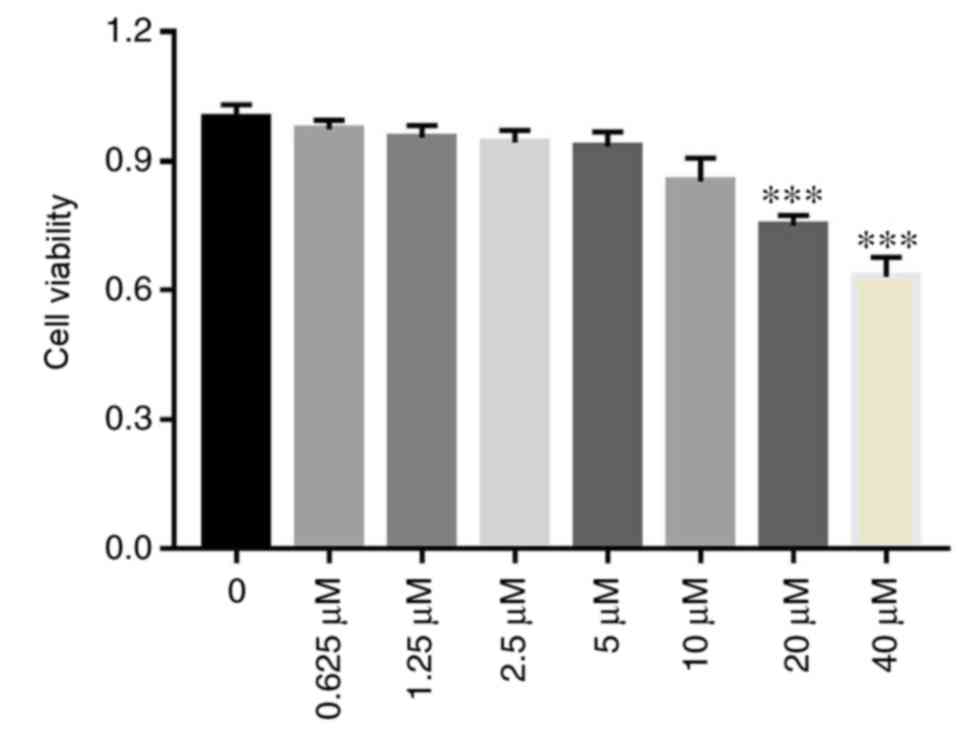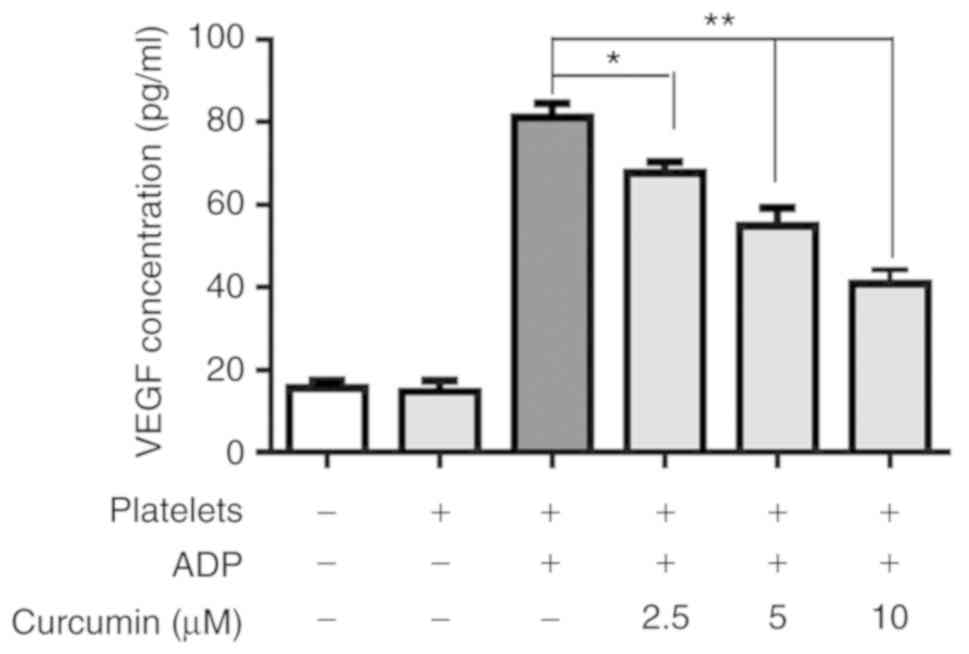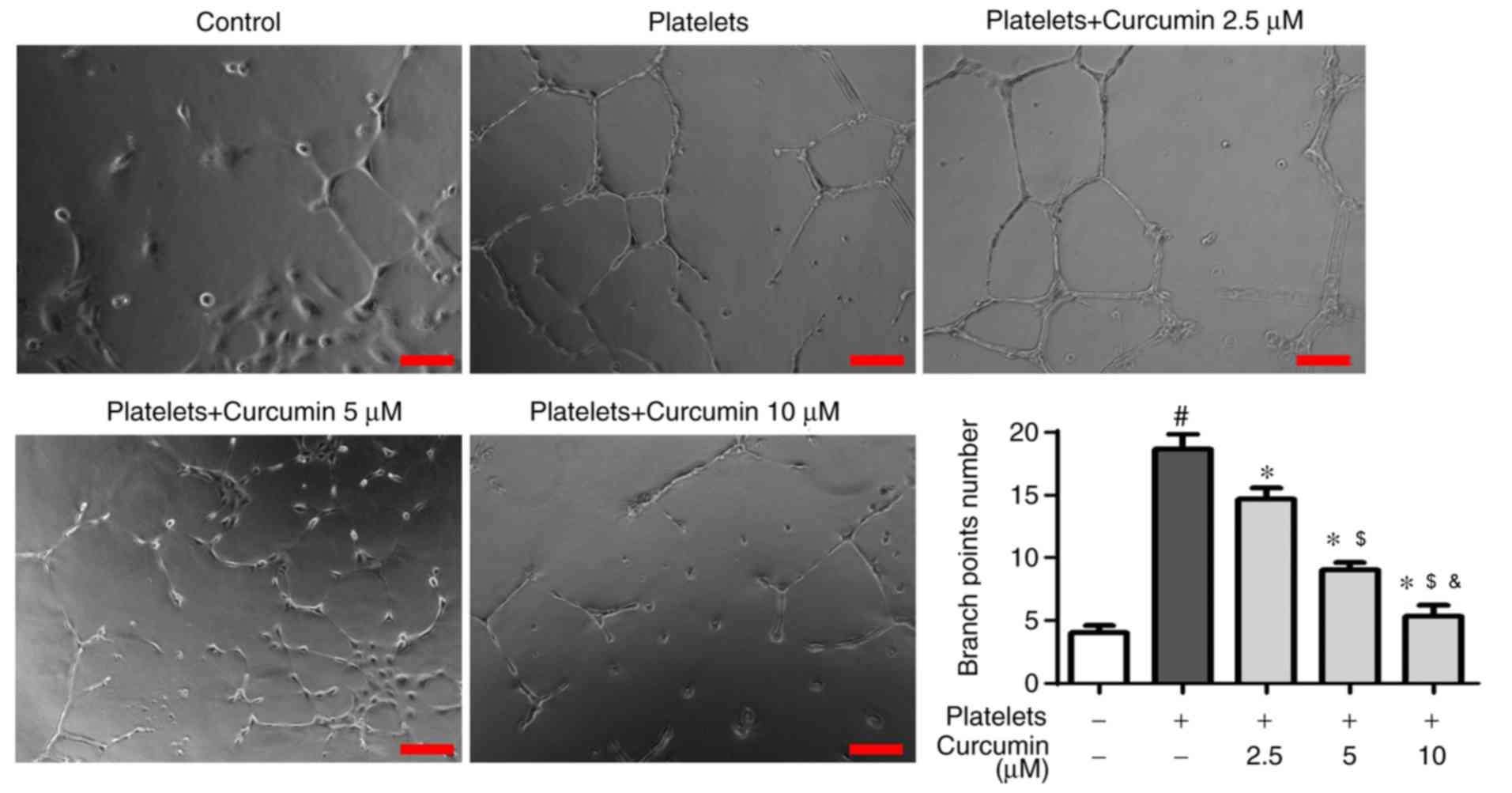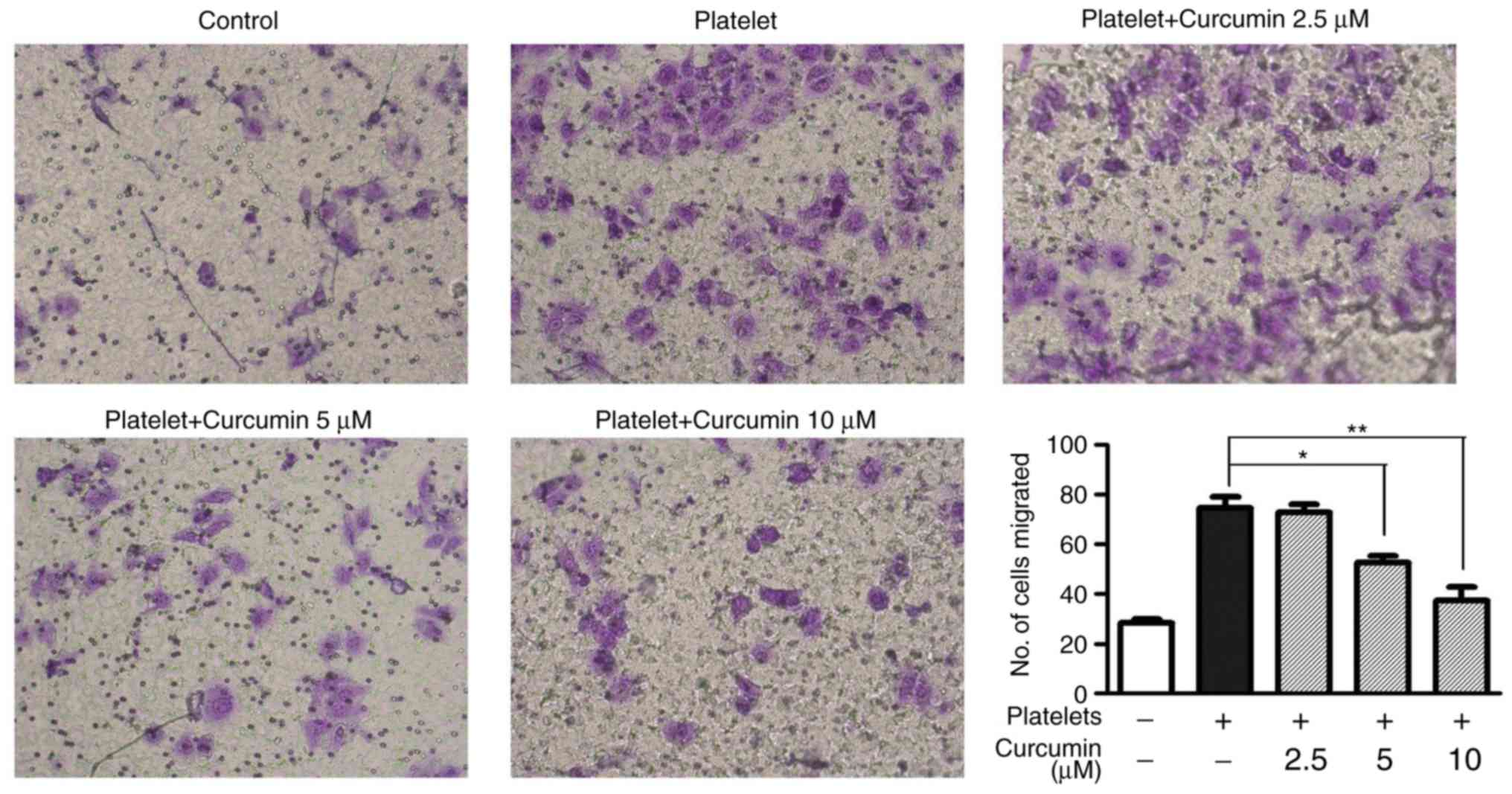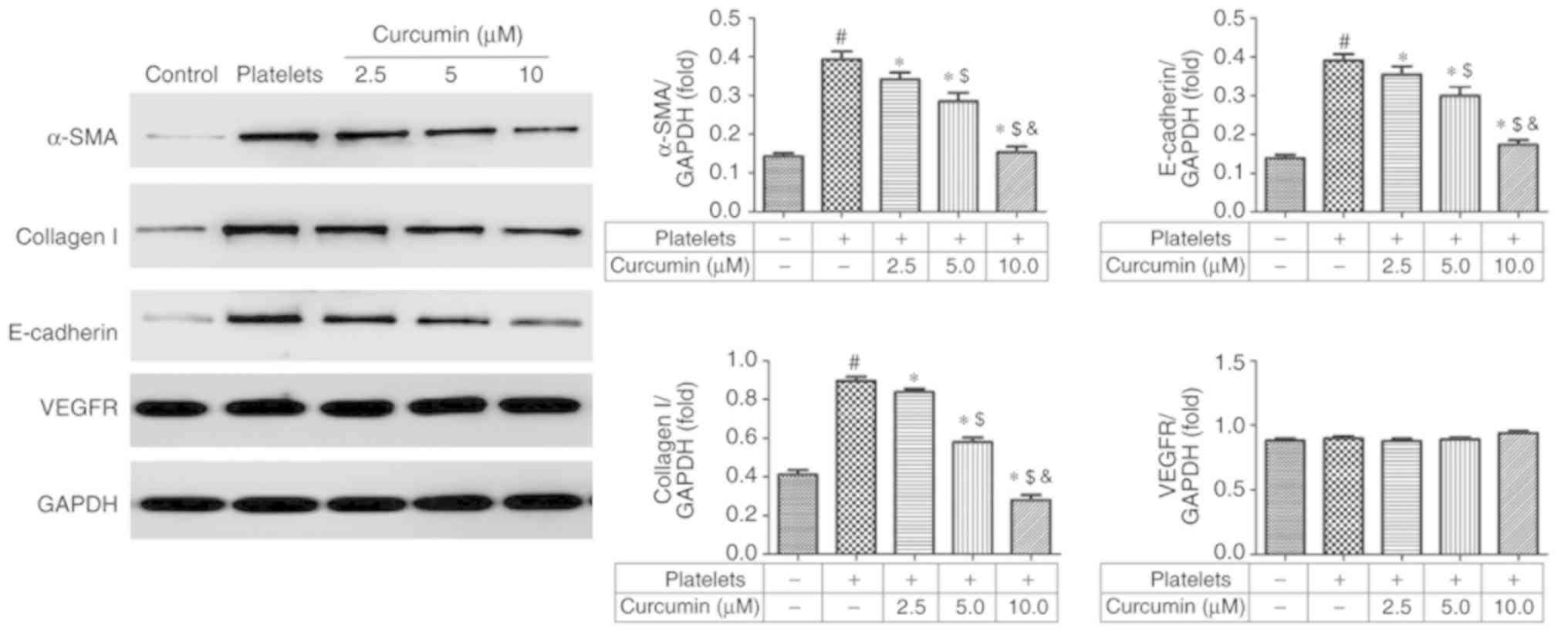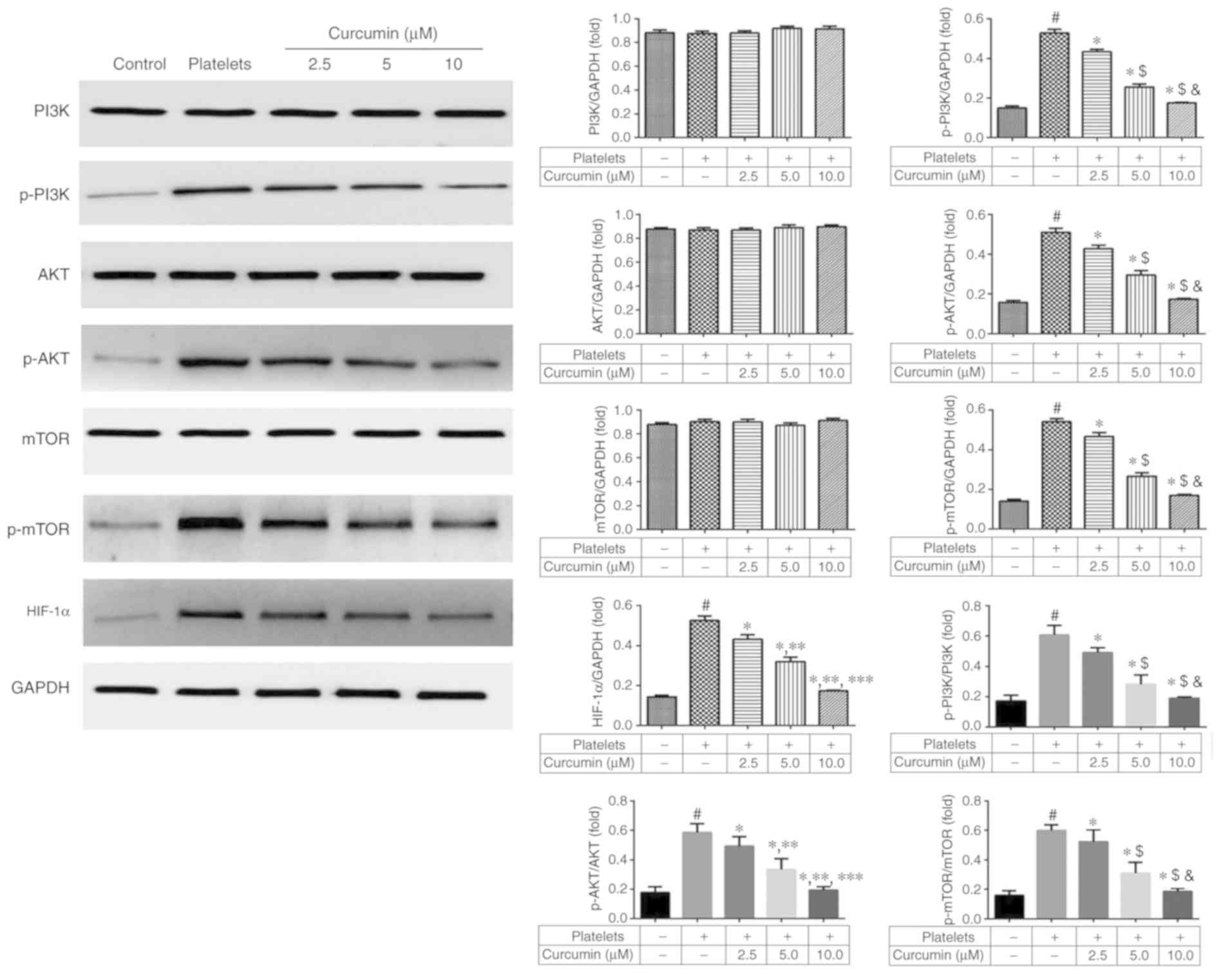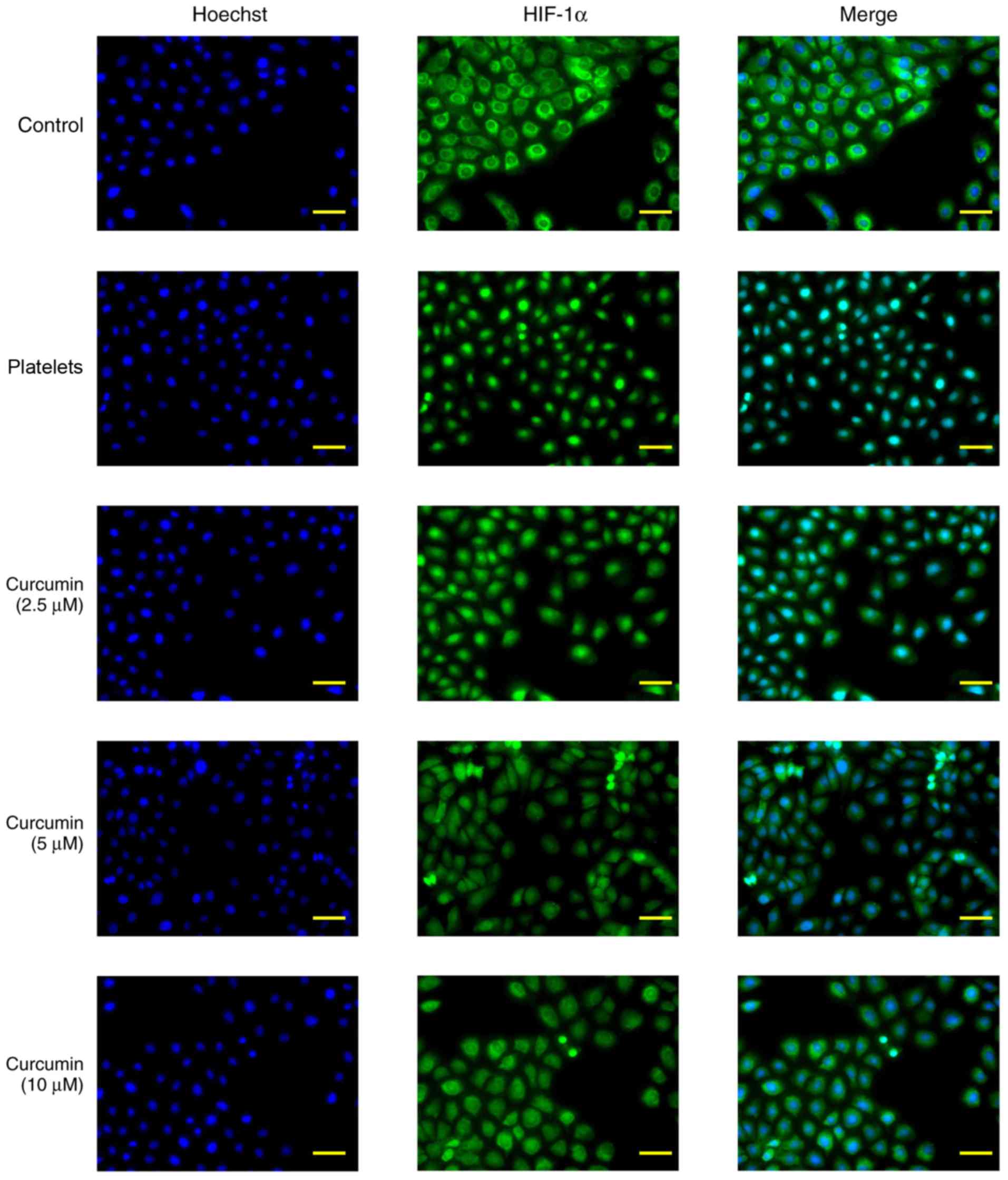|
1
|
Baumgart DC and Sandborn WJ: Cronhn's
disease. Lancet. 380:1590–1605. 2012. View Article : Google Scholar : PubMed/NCBI
|
|
2
|
Liu ZJ, Yadav PK, Su JL, Wang JS and Fei
K: Potential role of Th17 cells in the pathogenesis of inflammatory
bowel disease. World J Gastroenterol. 15:5784–5788. 2009.
View Article : Google Scholar : PubMed/NCBI
|
|
3
|
Ramsewak RS, DeWitt DL and Nair MG:
Cytotoxicity, antioxidant and anti-inflammatory activities of
curcumins I–III from Curcuma longa. Phytomedicine.
7:303–308. 2000. View Article : Google Scholar : PubMed/NCBI
|
|
4
|
Aggarwal BB and Harikumar KB: Potential
therapeutic effects of curcumin, the anti-inflammatory agent,
against neurodegenerative, cardiavascular, pulmonary, metabolic,
autoimmune and neoplastic disease. Int J Biochem Cell Biol.
41:40–59. 2009. View Article : Google Scholar : PubMed/NCBI
|
|
5
|
Yadav VR, Suresh S, Devi K and Yadav S:
Effect of cyclodextrin complexation of curcumin on its solubility
and antiangiogenic and anti-inflammatory activity in rat colitis
model. AAPS PharmSciTech. 10:752–762. 2009. View Article : Google Scholar : PubMed/NCBI
|
|
6
|
Salh B, Assi K, Templeman V, Parhar K,
Owen D, Gómez-Muñoz A and Jacobson K: Curcumin attenuates
DNB-induced murine colitis. Am J Physiol Gastrointest Liver
Physiol. 285:G235–G243. 2003. View Article : Google Scholar : PubMed/NCBI
|
|
7
|
Venkataranganna MV, Rafiq M, Gopumadhavan
S, Peer G, Babu UV and Mitra SK: NCB-02 (standardized Curcumin
preparation) protects dinitrochlorobenzene-induced colitis through
down-regulation of NFkappa-B and iNOS. World J Gastroenterol.
13:1103–1107. 2007. View Article : Google Scholar : PubMed/NCBI
|
|
8
|
Hanai H, Iida T, Takeuchi K, Watanabe F,
Maruyama Y, Andoh A, Tsujikawa T, Fujiyama Y, Mitsuyama K, Sata M,
et al: Curcumin maintenance therapy for ulcerative colitis:
Randomized, multicenter, double-blind, placebo-controlled trial.
Clin Gastroenterol Hepatol. 4:1502–1506. 2006. View Article : Google Scholar : PubMed/NCBI
|
|
9
|
Holt PR, Katz S and Kirshoff R: Curcumin
therapy in inflammatory bowel disease: A pilot study. Dig Dis Sci.
50:2191–2193. 2005. View Article : Google Scholar : PubMed/NCBI
|
|
10
|
Kohn EA, Du Z, Sato M, Van Schyndle CM,
Welsh MA, Yang YA, Stuelten CH, Tang B, Ju W, Bottinger EP and
Wakefield LM: A novel approach for the generation of genetically
modified mammary epithelial cell cultures yields new insights into
TGFβ signaling in the mammary gland. Breast Cancer Res. 12:R832010.
View Article : Google Scholar : PubMed/NCBI
|
|
11
|
Gomollón F: Developments in the treatment
of inflammatory bowel disease: 2014 overview. Gastroenterol
Hepatol. 37 (Suppl 3):S14–S21. 2014.(In Spanish). View Article : Google Scholar
|
|
12
|
Ng SC, Lam YT, Tsoi KK, Chan FK, Sung JJ
and Wu JC: Systematic review: The efficacy of herbal therapy in
inflammatory bowel disease. Aliment Pharmacol Ther. 38:854–863.
2013. View Article : Google Scholar : PubMed/NCBI
|
|
13
|
Rahimi R, Nikfar S and Abdollahi M:
Induction of clinical response and remission of inflammatory bowel
disease by use of herbal medicines: A meta-analysis. World J
Gastroenterol. 19:5738–5749. 2013. View Article : Google Scholar : PubMed/NCBI
|
|
14
|
Leonetti D, Reimund JM, Tesse A, Viennot
S, Martinez MC, Bretagne AL and Andriantsitohaina R: Circulating
microparticles from Crohn's disease patients cause endothelial and
vascular dysfunctions. PLoS One. 8:e730882013. View Article : Google Scholar : PubMed/NCBI
|
|
15
|
Danese S, Katz JA, Saibeni S, Papa A,
Gasbarrini A, Vecchi M and Fiocchi C: Activated platelets are the
source of elevated levels of soluble CD40 ligand in the circulation
of inflammatory bowel disease patients. Gut. 52:1435–1441. 2003.
View Article : Google Scholar : PubMed/NCBI
|
|
16
|
Scaldaferri F, Lancellotti S, Pizzoferrato
M and De Cristofaro R: Haemostatic system in inflammatory bowel
diseases: New players in gut inflammation. World J Gastroenterol.
17:594–608. 2011. View Article : Google Scholar : PubMed/NCBI
|
|
17
|
Reddy PH, Manczak M, Yin X, Grady MC,
Mitchell A, Tonk S, Kuruva CS, Bhatti JS, Kandimalla R, Vijayan M,
et al: Protective effects of indian spice curcumin against
amyloid-β in Alzheimer's disease. J Alzheimers Dis. 61:843–866.
2018. View Article : Google Scholar : PubMed/NCBI
|
|
18
|
Singh N, Sachdev A and Gopinath P:
Polysaccharide functionalized single walled carbon nanotubes as
nanocarriers for delivery of curcumin in lung cancer cells. J
Nanosci Nanotechnol. 18:1534–1541. 2018. View Article : Google Scholar : PubMed/NCBI
|
|
19
|
Masuelli L, Granato M, Benvenuto M,
Mattera R, Bernardini R, Mattei M, d'Amati G, D'Orazi G, Faggioni
A, Bei R and Cirone M: Chloroquine supplementation increases the
cytotoxic effect of curcumin against Her2/neu overexpressing breast
cancer cells in vitro and in vivo in nude mice while counteracts it
in immune competent mice. Oncoimmunology. 6:e13561512017.
View Article : Google Scholar : PubMed/NCBI
|
|
20
|
Wu KH, Ho CT, Chen ZF, Chen LC, Whang-Peng
J, Lin TN and Ho YS: The apple polyphenol phloretin inhibits breast
cancer cell migration and proliferation via inhibition of signals
by type 2 glucose transporter. J Food Drug Anal. 26:221–23. 2018.
View Article : Google Scholar : PubMed/NCBI
|
|
21
|
Zhang Z, Wang Y, Zhang J, Zhong J and Yang
R: COL1A1 promotes metastasis in colorectal cancer by regulating
the WNT/PCP pathway. Mol Med Rep. 17:5037–5042. 2018.PubMed/NCBI
|
|
22
|
Guo H, Zhang X, Chen Q, Bao Y, Dong C and
Wang X: miR-132 suppresses the migration and invasion of lung
cancer cells by blocking USP9X-induced epithelial-mesenchymal
transition. Am J Transl Res. 10:224–234. 2018.PubMed/NCBI
|
|
23
|
Ogunbolude Y, Dai C, Bagu ET, Goel RK,
Miah S, MacAusland-Berg J, Ng CY, Chibbar R, Napper S, Raptis L, et
al: FRK inhibits breast cancer cell migration and invasion by
suppressing epithelial-mesenchymal transition. Oncotarget.
8:113034–113065. 2017. View Article : Google Scholar : PubMed/NCBI
|
|
24
|
Wang L, Tong D, Guo Q, Wang X, Wu F, Li Q,
Yang J, Zhao L, Qin Y, Liu Y and Huang C: HOXD3 targeted by
miR-203a suppresses cell metastasis and angiogenesis through VEGFR
in human hepatocellular carcinoma cells. Sci Rep. 8:24312018.
View Article : Google Scholar : PubMed/NCBI
|
|
25
|
Choi YH, Jin GY, Li LC and Yan GH:
Inhibition of protein kinase C delta attenuates allergic airway
inflammation through suppression of PI3K/Akt/mTOR/HIF-1 alpha/VEGF
pathway. PLoS One. 8:e817732013. View Article : Google Scholar : PubMed/NCBI
|
|
26
|
Zhu Y, Tan J, Xie H, Wang J, Meng X and
Wang R: HIF-1α regulates EMT via the Snail and β-catenin pathways
in paraquat poisoning-induced early pulmonary fibrosis. J Cell Mol
Med. 20:688–697. 2016. View Article : Google Scholar : PubMed/NCBI
|
|
27
|
Zhang J, Zhu L, Fang J, Ge Z and Li X:
LRG1 modulates epithelial-mesenchymal transition and angiogenesis
in colorectal cancer via HIF-1α activation. J Exp Clin Cancer Res.
35:292016. View Article : Google Scholar : PubMed/NCBI
|
|
28
|
Baumann B, Hayashida T, Liang X and
Schnaper HW: Hypoxia-inducible factor-1α promotes
glomerulosclerosis and regulates COL1A2 expression through
interactions with Smad3. Kidney Int. 90:797–808. 2016. View Article : Google Scholar : PubMed/NCBI
|
|
29
|
Watanabe T, Yasue A and Tanaka E:
Hypoxia-inducible factor-1α is required for transforming growth
factor-β1-induced type I collagen, periostin and α-smooth muscle
actin expression in human periodontal ligament cells. Arch Oral
Biol. 59:595–600. 2014. View Article : Google Scholar : PubMed/NCBI
|
|
30
|
Yang N, Liang Y, Yang P and Ji F: Propofol
suppresses LPS-induced nuclear accumulation of HIF-1α and tumor
aggressiveness in non-small cell lung cancer. Oncol Rep.
37:2611–2619. 2017. View Article : Google Scholar : PubMed/NCBI
|















